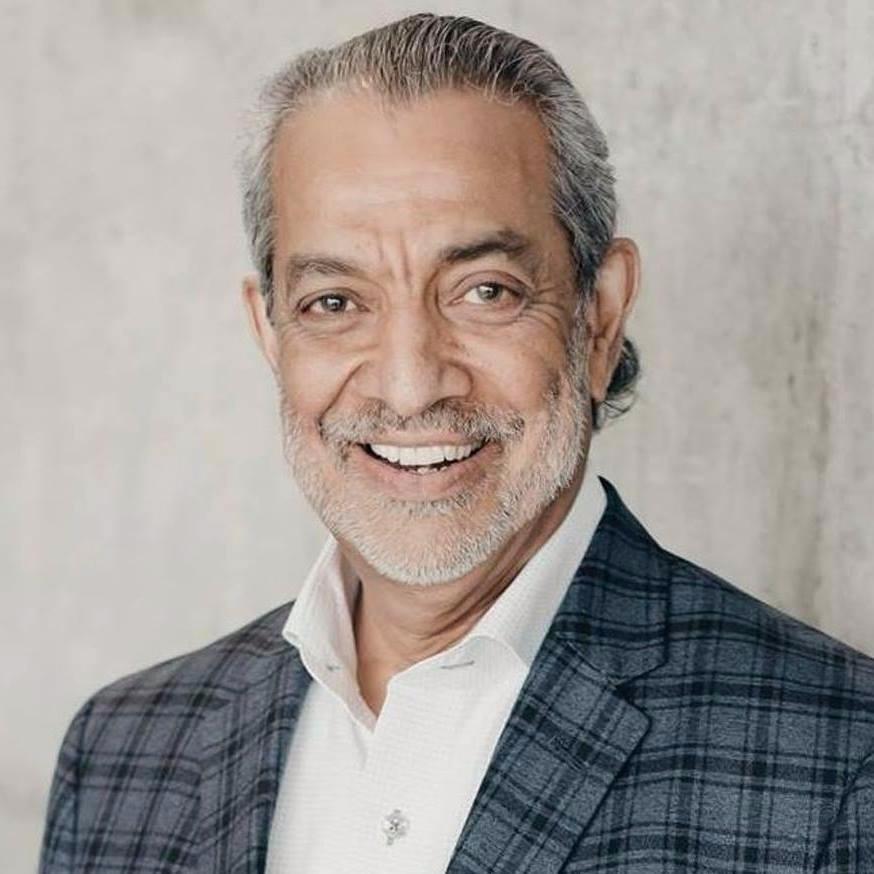 The COVID pandemic has taught us about reset, rethink and collaboration, according to Sam Chand, who has gone from a young immigrant kid from India washing dishes to an acclaimed global leadership author, speaker and consultant.
The COVID pandemic has taught us about reset, rethink and collaboration, according to Sam Chand, who has gone from a young immigrant kid from India washing dishes to an acclaimed global leadership author, speaker and consultant.
Sam Chand has been an influencer of others for decades, whether mega-church pastors or business leaders. Sam was raised in a pastor’s home in India. He came to the US in 1973 and while a student at Beulah Heights Bible College also worked as a janitor, cook and dishwasher. In 1989 he returned as President of the same college. Under his leadership, it became the country’s largest predominantly African-American Christian College. He remains President Emeritus of Beulah Heights University. He is now in his late 60’s and in this season of his life, his singular vision for his life is to help others succeed.
I spoke with Sam on June 25, 2021, about the present COIVD situation. He put the unique circumstances in context. The physical pandemic is the greatest since 1981. The financial setback is the greatest since the Great Depression of 1929. The social upheaval is the greatest since the 1960s. The bottom line is that leaders are tired and fatigued.
The first lesson from the pandemic is that it has forced a reset. Prior to COVID, Sam was on the road almost 200 days a year, speaking throughout the world. He has now discovered that he can get a lot done from the comfort of his home office. He is focused on writing, with three books in process, and less on platform speaking. He does transition and strategic planning; this can involve a lot of thinking about how to understand and navigate present circumstances. He focuses on smaller audiences with top leaders. He works with megachurch pastors from around the world with churches of 10,000 or more attendees.
The second lesson of the pandemic is that it has forced people to rethink their personal, business and leadership situations. Sam suggests that leaders should ask five questions: First, what should we start? There may be an opportunity to start a new initiative. Second, what should we stop? There may be something that is not working—and the time has come to end it. Third, what to suspend? There may be something that can be continued—but not right now. Fourth, what to sustain? There may be things that are important to keep going. Lastly, what to speed up? There may be an opportunity and it is important to grasp the chance to make a difference.
A third lesson from the pandemic is to rethink the nature of collaboration. The current pandemic is changing the way that teams work together. The changes in work-life patterns due to the Coronavirus have shifted our perspectives in several areas. Chand states, “The pandemic––and its implications for both leaders and staff–– is changing the way we collaborate as teams.”
The ways in which team members bring value to an organization are shifting. Chand explains: “It’s not just working remotely that’s causing a change; in fact, working remotely is the catalyst for a much more important shift–– a shift in our mindset. No longer do we view certain team members as essential simply by merit of their positions. No longer do we discount team members who used to be “behind-the-scenes” (such as the IT Dept) because now, they’re bringing services that we need to survive. Our entire perspective on value in the workplace is changing.”
What does this shift mean for the future of collaboration? What does it mean for retention? It means we have to make changes. Chand notes that “Our collaboration has shifted, and so has the way we view our team members. These things will never go back to exactly what they used to be–– and they shouldn’t! This is a time when everybody needs everybody. We’ve begun to appreciate the contributions of each team member; we’ve begun to evaluate the value everybody brings to the table. The focus is no longer who’s at the top–– it’s survival as a whole.”
Chand explains that “Here’s the bottom line: if we miss out on this moment of high-level collaboration, we’ll have lost a major opportunity in our organizations. To take advantage of this season requires that you see your team in a new light and open yourself up to new ways of collaborating. It requires that you truly assess who is essential and who is not, with an unbiased perspective. Collaboration has improved in many ways already, and it has the potential to keep improving...if we capitalize on this moment.”
In short, the pandemic has brought many challenges, and yet there are valuable lessons to be learned. Sam has spent a lifetime adapting to changing circumstances. His way of helping others to succeed is to have them focus on applying the lessons learned to the opportunities ahead.

